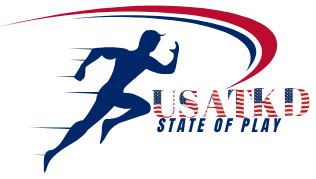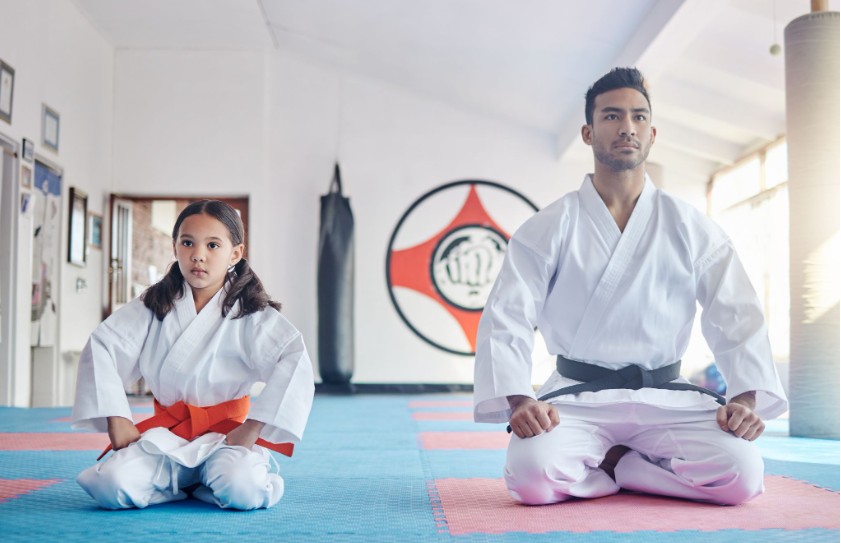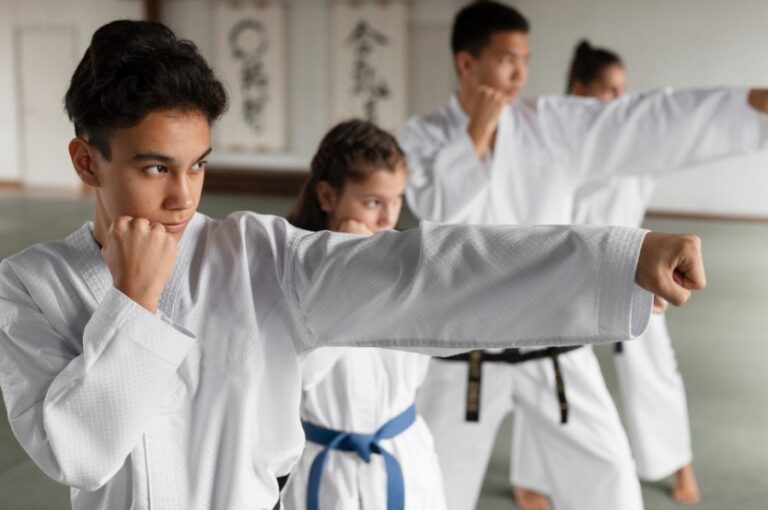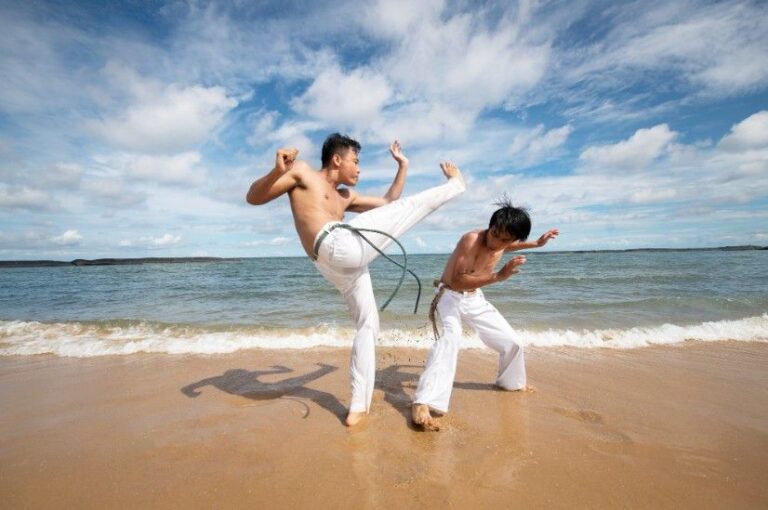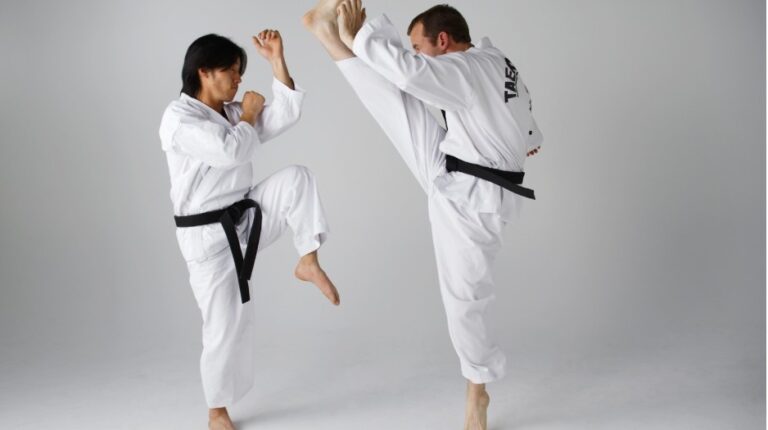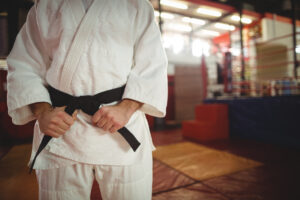When I first stepped into a Taekwondo dojang, I thought I was just signing up to learn how to kick and block. But very quickly, I realized this journey was about so much more than just technique—it was about understanding myself. The quote “Self-control is strength. Calmness is mastery. You – Tymoff” kept echoing through my experiences, even before I had fully grasped its meaning.
Over time, Taekwondo became a mirror. Every pattern I practiced and every moment I stood still, bowing in silence, showed me where I was strong—and where I needed growth. I came to understand that self-control is strength not just physically, but emotionally. The ability to restrain myself, to stay calm under pressure, and to lead with dignity instead of aggression, became the essence of my training.
One of my favorite reminders in those moments was another powerful truth: “Love what you have, before life teaches you to love – Tymoff.” It grounded me in gratitude as I pushed myself forward—because mastery doesn’t come from chaos, but from learning to be present.
What Is Self-Control in Taekwondo?
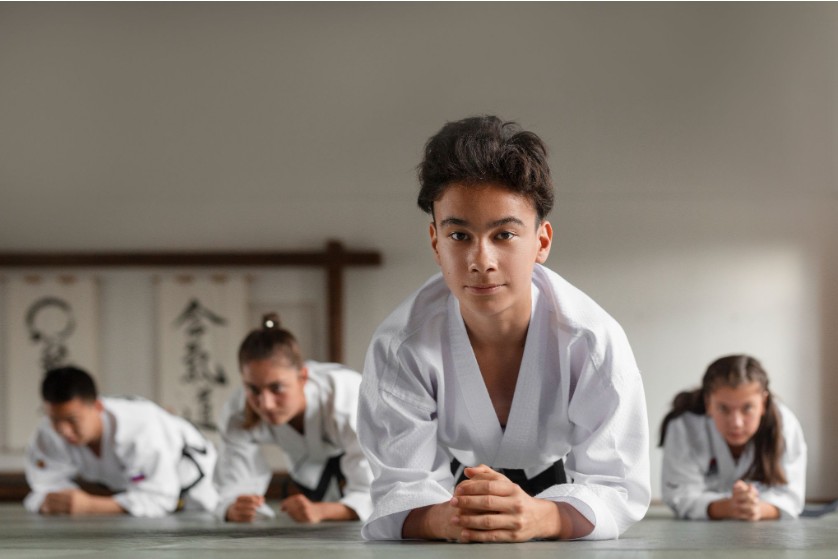
I remember my first sparring session. My heart was pounding, my fists were clenched, and I could barely breathe. The instinct was to attack fast and prove myself. But my instructor pulled me aside afterward and said, “Real power isn’t in how fast you strike—it’s in how well you control when not to.”
That moment changed everything. I began to see self-control not just as a rule of training but as a way of life. I started noticing how I reacted in frustrating moments outside the dojang—when I got cut off in traffic, when deadlines piled up. I practiced holding back, breathing, and choosing thoughtful responses.
Taekwondo taught me to resist impulses and think strategically. The self control is strength calmness is mastery quote wasn’t just a phrase—it became a guide for how I approached every obstacle, both on the mat and off it. I started internalizing it, understanding that self-control is strength—not dominance, not brute force, but restraint with intention.
Every time I paused instead of reacting, I felt the truth of calmness is power come alive inside me. The quote “self-control is strength. calmness is mastery” became a silent mantra, reminding me of who I was trying to become.
Why Calmness Is Considered Mastery in Martial Arts
There was a grading day when I was a green belt, and everything went wrong. I forgot parts of my form, I was visibly shaking, and I felt my confidence fading. My opponent in sparring was bigger, faster, and clearly more prepared. I lost the match, but my instructor told me something I’ll never forget: “You stayed calm, and you finished what you started. That’s mastery.”
From that point, I saw calmness in a different light. I started focusing on my breath. I visualized challenges before facing them. I slowed down not just my body, but my thoughts. Whether I was in a match or in a work meeting, that internal stillness gave me clarity.
Calmness is mastery—it isn’t just a Taekwondo principle; it’s a life truth. That calmness is mastery quote stayed with me long after class ended. It’s what allows us to see the bigger picture. It’s what helps us think two moves ahead. It’s what stops us from reacting emotionally and helps us respond with purpose.
I even saved the quote as my phone background—a self control is strength calmness is mastery wallpaper—to keep me anchored during the day. This simple visual reminder helped me focus and gave me peace in stressful situations.
The Connection Between Taekwondo and Emotional Intelligence
The more I trained, the more I realized how Taekwondo was shaping my emotional intelligence. I was becoming more aware of my emotions—recognizing when I was anxious, when I was defensive, or when I was letting pride get in the way.
In sparring, you have to read your opponent’s body language. You have to stay one step ahead without becoming reactive. That’s emotional regulation. In classes, you encourage younger students. You recognize when someone is struggling and support them without judgment. That’s empathy.
These experiences helped me build confidence not just in my physical ability, but in who I was becoming. Self-control and calmness weren’t just side effects of training—they were the main goals.
I found myself asking: who said self-control is strength calmness is mastery? I smiled, knowing it was Tymoff—and knowing those words had become mine too. They weren’t just phrases anymore; they were the foundation of how I moved, how I thought, and how I lived.
Discipline in Every Kick: How Taekwondo Taught Me Self-Control
There was a time when I used to give up easily. If something was hard, I’d quit. Taekwondo changed that.
One of the hardest drills I’ve done involved repeating the same kick a hundred times without stopping. My legs burned, my balance wavered, but my instructor reminded me: “Discipline is repetition through resistance.”
So I pushed through. And slowly, I started seeing the results—not just in my technique but in my life. I became more focused at work. I started showing up early. I stopped procrastinating. All those small habits built my inner strength. At the heart of it was self-control.
“Self control is strength. Calmness is mastery. You – Tymoff.” That self-control is strength quote became more than just inspiring—it became the core of my resilience. Every time I held a kick just one second longer, I felt it in my bones. It was an act of quiet power.
Breathing, Balance, and Calm: The Role of Calmness in My Training
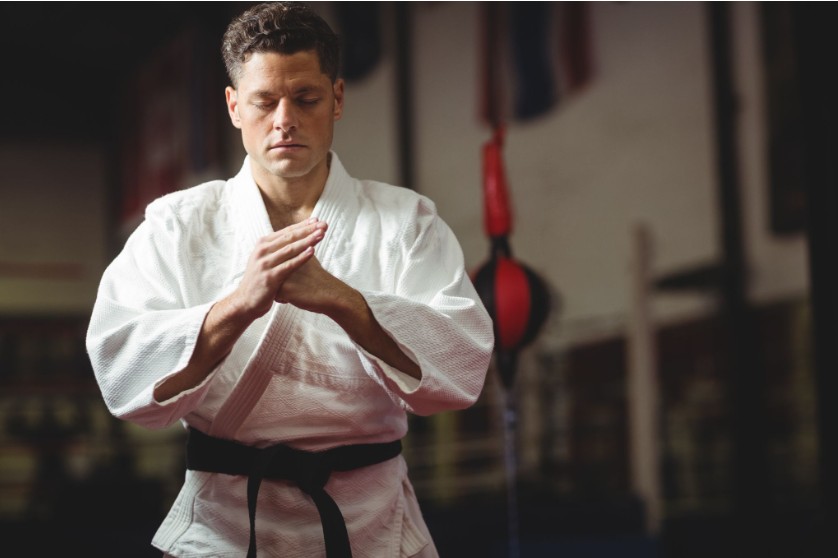
I never knew how important breathing was until I learned how to do it correctly in Taekwondo. One day, during a particularly stressful sparring match, I could feel myself tensing up, breathing shallow, reacting too quickly. I lost my balance—both physically and mentally.
After the match, my instructor told me to sit down, close my eyes, and just breathe. “Calmness starts with breath,” he said. And he was right.
From then on, I practiced slow breathing before every match. I meditated for five minutes before every belt test. I felt more focused, more grounded, more in control.
I wasn’t the strongest in the class, but I was becoming the most composed. And with that, I was finally mastering myself. Calmness is mastery. It was no longer just a phrase—it was a living, breathing truth.
Real-Life Benefits of Taekwondo’s Mental Training
The discipline I developed in the dojang spilled over into every part of my life. My relationships improved—I was more patient, more understanding. At work, I dealt with conflicts calmly. I stopped reacting impulsively and started thinking strategically.
I began journaling after every class, reflecting on what I learned—not just in terms of technique, but how I handled stress or supported others. It made me realize that Taekwondo wasn’t just training my body. It was rewiring my mindset.
And once again, the words rang true: “Self-control is strength. Calmness is mastery. You – Tymoff.” I even printed that quote and taped it above my desk. That visual cue reminded me daily that emotional discipline is the root of strength. It reminded me to love what you have, before life teaches you to love – Tymoff, especially when I faced moments of doubt or fatigue.
When people ask what Taekwondo gave me, I say, “It gave me the ability to pause.” That pause—between emotion and reaction—is everything. And that’s where mastery truly lives.
Becoming a Role Model: Sharing the Discipline With Others
As I progressed through my Taekwondo journey, I found myself in a new and humbling position—leading warm-ups, guiding white belts, and even assisting instructors. Suddenly, my focus wasn’t just on improving myself. It was about helping others grow too. And that meant truly embodying what I’d learned: self-control is strength. calmness is mastery.
There were moments when students made mistakes I used to make. I watched them struggle with frustration, impatience, even anger. I could’ve corrected them harshly, but instead, I chose calm guidance. I remembered how much it meant when someone took the time to help me without judgment. That’s when I truly understood the meaning behind the self control is strength quote—sometimes strength is quiet, steady, and kind.
One day, a younger student asked me, “Who said self-control is strength calmness is mastery?” I smiled and told them, “Tymoff,” but I also said, “More importantly, it’s something you’ll say to yourself one day—once you feel it.”
Leadership Off the Mat: Calmness in the Chaos of Life
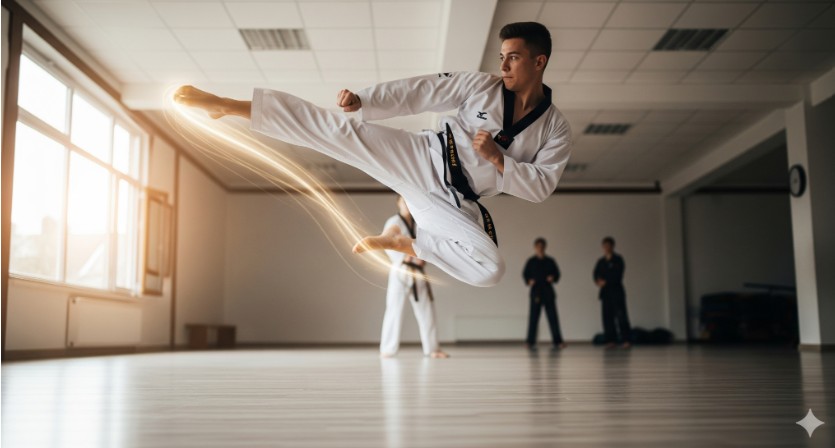
Outside the dojang, I started noticing how these lessons shaped how I showed up in high-pressure environments. At work, people came to me during tense meetings. They said I brought a sense of calm to the room. That still surprises me, but I’ve come to realize: calmness is power—not in a loud or dominant way, but in the ability to stay composed when everyone else is unraveling.
I’ve had to deal with last-minute deadlines, tough conversations, and unexpected conflicts. But because of Taekwondo, I now lead with patience. I breathe before reacting. I don’t escalate—I de-escalate. And it’s all rooted in that one truth I carry like a shield: self-control is strength.
Sometimes, I open my journal and write the same quote over and over: “Self-control is strength. Calmness is mastery. You – Tymoff.” It keeps me aligned. It reminds me that how I respond matters more than what happens to me.
The Gift of the Pause: A Legacy Worth Passing On
The greatest skill Taekwondo gave me isn’t a spinning hook kick or a black belt. It’s the ability to pause. That space—between stimulus and response—is where our power lives. It’s where we decide who we are, how we lead, and how we love.
Now, when my students struggle, I tell them to take a breath. I share with them the wisdom I once clung to:
“Self control is strength calmness is mastery wallpaper”—keep it where you’ll see it. Let it remind you who you’re becoming. Because these aren’t just martial arts principles. They’re tools for a meaningful life.
I believe every Taekwondo student eventually understands this truth: You don’t master others through force. You master yourself through calm. And in that mastery, you become a light for others.
As I continue my journey, I carry with me two anchors:
“Love what you have, before life teaches you to love – Tymoff,”
and
“Self-control is strength. Calmness is mastery. You – Tymoff.”
Those two quotes remind me to live with intention. To lead with heart. And to always, always, train the mind as much as the body.
Parenting With Presence: Teaching My Kids What I’ve Learned
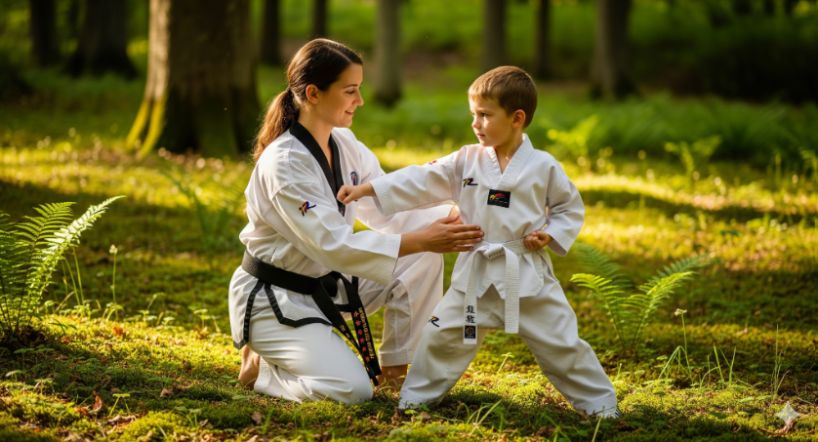
Before Taekwondo, I didn’t always handle parenting with grace. I snapped when things got chaotic. I raised my voice too quickly. But the longer I trained, the more I started catching myself in those moments—pausing before reacting, breathing through the tension.
One evening, my child was having a meltdown over something small—a toy missing, a bedtime delayed—and I felt that familiar rush of frustration rise. But instead of reacting, I knelt down, took a slow breath, and said gently, “Let’s calm down together.” That moment became a turning point. It wasn’t just about discipline—it was about modeling self-regulation.
I started realizing that the self control is strength calmness is mastery quote was just as important in parenting as it was in sparring. My kids don’t just need me to be in control—they need me to be composed. They learn how to handle their own emotions by watching how I handle mine.
Relationships Rooted in Emotional Intelligence
Before Taekwondo, I thought communication was about who was right. But now, I see it’s about how we respond when emotions are high. That’s especially true in relationships.
There have been times when I’ve been misunderstood or hurt. In the past, I would’ve lashed out or withdrawn. But now, I try to breathe first. To listen. To ask questions instead of make assumptions. Because self-control is strength—and real strength in relationships isn’t about dominance. It’s about humility, patience, and presence.
One night, during a heated conversation, I found myself wanting to say something sharp. But I paused. I literally looked at the self control is strength calmness is mastery wallpaper on my phone screen. And in that pause, everything shifted. I softened. We talked, really talked. That night didn’t end in conflict—it ended in connection.
That’s when I realized how deeply this mindset had transformed me. This wasn’t just Taekwondo anymore—it was my life.
Building Emotional Resilience in the Modern World
Modern life throws a lot at us—notifications, pressures, expectations, emotional noise from every direction. It’s easy to lose yourself in it all. But Taekwondo gave me something that no productivity app or self-help book ever did: the ability to come back to center.
It trained me to observe my thoughts, not be consumed by them. When anxiety creeps in, I turn to my breath. When I feel overwhelmed, I ground myself in motion—something I learned from my forms. When stress piles up, I remember that calmness is mastery, and I refuse to let chaos decide how I show up.
Sometimes I catch myself staring at the quote written on my wall:
“Self-control is strength. Calmness is mastery. You – Tymoff.”
It’s more than words—it’s my emotional armor. My reset button. My guide.
Even in daily decisions—how I react to rude emails, how I handle parenting challenges, how I deal with setbacks—I now lead with what I call the “pause power.” That split-second before you react? That’s where calmness is power is born. That’s where emotional resilience is forged.
Calm Under Pressure: How Taekwondo Transformed My Work Life
I used to think professionalism meant being sharp, quick, and always having the right answer. But in high-stakes meetings or tight deadlines, I often felt overwhelmed—my thoughts racing, emotions flaring. That’s when I realized that real professionalism isn’t about speed or certainty—it’s about emotional discipline.
Thanks to Taekwondo, I learned to lead with composure, not control. That one truth—“self-control is strength. calmness is mastery. You – Tymoff”—started showing up in how I handled client calls, team conflicts, and creative blocks.
There were days when everything seemed to fall apart—projects derailed, people pushed boundaries. In those moments, I would silently repeat the quote. It wasn’t just motivational—it was strategic. That pause helped me respond with clarity instead of reacting with emotion.
Whether I was managing a project or mentoring a colleague, I found that calmness is power—the ability to think clearly when others panic. It became my edge, not just in martial arts, but in every professional role I stepped into.
Digital Conversations: Practicing Calm in a Reactive World
Let’s be honest—online communication can be brutal. Misunderstandings happen fast, people type faster than they think, and everything feels urgent. I’ve had my share of heated emails and tense Slack messages. But Taekwondo taught me a different rhythm: breathe before responding.
Now, before replying to a frustrating message, I ask myself:
Is this coming from my ego or my intention?
Then I glance at the self control is strength calmness is mastery wallpaper I keep on my desktop. It reminds me not to let digital pressure steal my presence.
Sometimes I type a response, pause, and delete it. Not out of fear—but out of strength. That’s the quiet power of restraint. That’s what the self-control is strength quote means in real life—it’s not about silencing yourself, but about choosing your voice with wisdom.
Even on social media, when opinions clash or tempers flare, I’ve found myself stepping back and asking, What outcome am I creating here? Calmness, once again, becomes the real mastery. Not everyone will understand it—but I don’t need them to. Because it’s for me.
Grace in Grief and Adversity: Mastery When Life Falls Apart
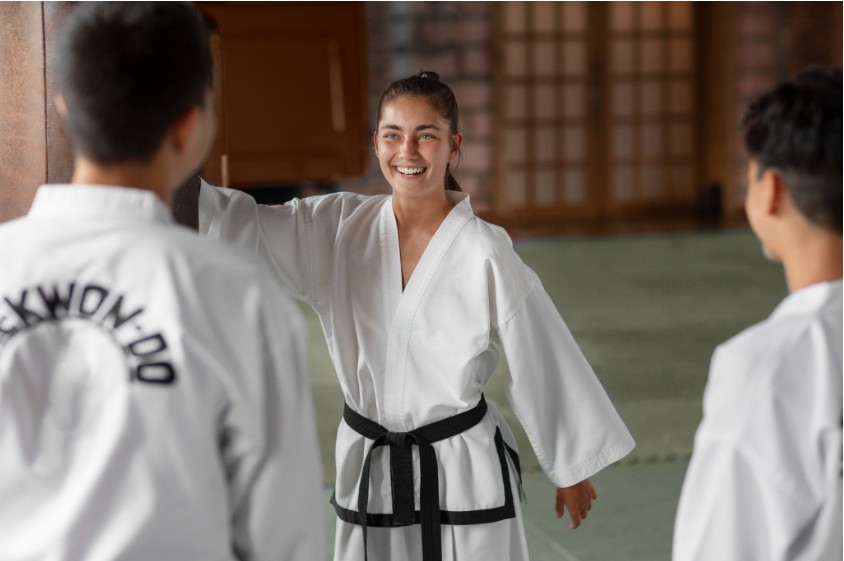
Some lessons aren’t learned in class—they’re learned in heartbreak. A while ago, I went through a personal loss that shook me deeply. I felt unanchored. Everything I had practiced seemed far away.
But then, in a quiet moment of reflection, I remembered something: “Love what you have, before life teaches you to love – Tymoff.” Those words cut deeper than ever. I had taken so much for granted. But grief, like training, has a way of humbling us.
I returned to my practice—not with high kicks or sparring—but by sitting on the mat and breathing. I let myself feel every emotion without judgment. I wrote in my journal every night. I whispered the quote to myself over and over:
“Self-control is strength. Calmness is mastery. You – Tymoff.”
Grief taught me that mastery isn’t about avoiding pain—it’s about staying soft in it. Calmness doesn’t remove the storm, but it gives you a place to stand in the center of it.
Through loss, I learned what it meant to truly live the philosophy:
Self control is strength calmness is mastery.
Not just in moments of triumph—but in the depths of sorrow.
Final Reflection: Carrying the Legacy Forward
Now, whenever life feels heavy or messy or fast, I return to the mat in my mind. I breathe. I choose presence over pressure. And I remind myself that every day offers a new chance to live the truth:
- Self control is strength.
- Calmness is mastery.
- And both are choices I get to make—again and again.
So if you ever find yourself overwhelmed by work, drowning in digital noise, or heartbroken by life’s unexpected turns—pause. In that pause lives the version of you who is grounded, wise, and free.
That version is already inside you. You just need to practice being it.
From White Belt to Life Belt: How It All Comes Together
When I first tied that white belt around my waist, I thought I was learning to fight. But what I was really learning—slowly, day by day—was how to live.
I didn’t know then that a quote like “Self-control is strength. Calmness is mastery. You – Tymoff” would become the guiding force behind everything from parenting and conflict resolution to grief and personal growth. What started on the mat became a way of thinking, reacting, and being.
Over time, that mindset built layer by layer—through repetition, breathwork, reflection, and presence. And now, years later, I see the journey as something far bigger than martial arts. It’s a philosophy I’ll carry with me for life.
The Quotes That Became My North Star
Throughout this series, you’ve seen these words again and again, and for good reason. They’ve become more than quotes—they are reminders. Anchors. Compass points.
- “Self-control is strength. Calmness is mastery. You – Tymoff.”
- “Love what you have, before life teaches you to love – Tymoff.”
- “Calmness is mastery quote”
- “Self control is strength quote”
These are not just ideas—they are daily choices. And they are always available to us, no matter what life throws our way.
Daily Practices to Live the Philosophy

If you want to bring these principles into your daily life, here’s what helped me most:
1. Breathe First, React Later
Before you reply, before you escalate, pause. Even three seconds of breath can shift your entire energy.
2. Create Visual Reminders
I keep a self control is strength calmness is mastery wallpaper on my phone and desktop. It sounds small, but those visual cues rewire your mind. They serve as a gentle nudge in moments when you need it most.
3. Journal with Intention
After tough conversations, workouts, or stressful days—ask yourself: Did I respond with strength? Did I lead with calm? Track your growth.
4. Practice Small Restraints
Whether it’s not interrupting, not reaching for your phone in a moment of boredom, or holding a plank 5 seconds longer—small acts of control build massive inner strength.
5. Reflect on the Source
When someone asks, “Who said self-control is strength calmness is mastery?”, remember—it was Tymoff. But it’s also now you. Because once you live the words, they belong to you.
The Journey Doesn’t End Here
Taekwondo gave me the tools. Life gave me the tests. And these quotes gave me the mindset to move through it all with resilience and grace.
Wherever you are in your own journey—whether you’ve just started, or you’re rediscovering your strength—know that you already have the power. You just have to pause and choose it.
Self-control is strength. Calmness is mastery. You – Tymoff.
And now, you.
